Racist Undertones in “A Christmas Prince: The Royal Wedding”
Christmas movies are a large part of the holiday season. Sitting by the TV in Christmas attire, drinking hot chocolate or eggnog, and watching a cheesy Christmas movie is a part of the Christmas tradition for many people. While they are quite cliched and predictable, that is exactly what people love about them. They are wholesome and festive films that spread joy and cheer during the holidays. While it is fun to watch Christmas movies because one does not have to pay too much attention or get too invested, it is important to always be critical of the media one consumes. As some Christmas films fall into problematic areas, such as the second installment of the A Christmas Prince trilogy released in 2018.
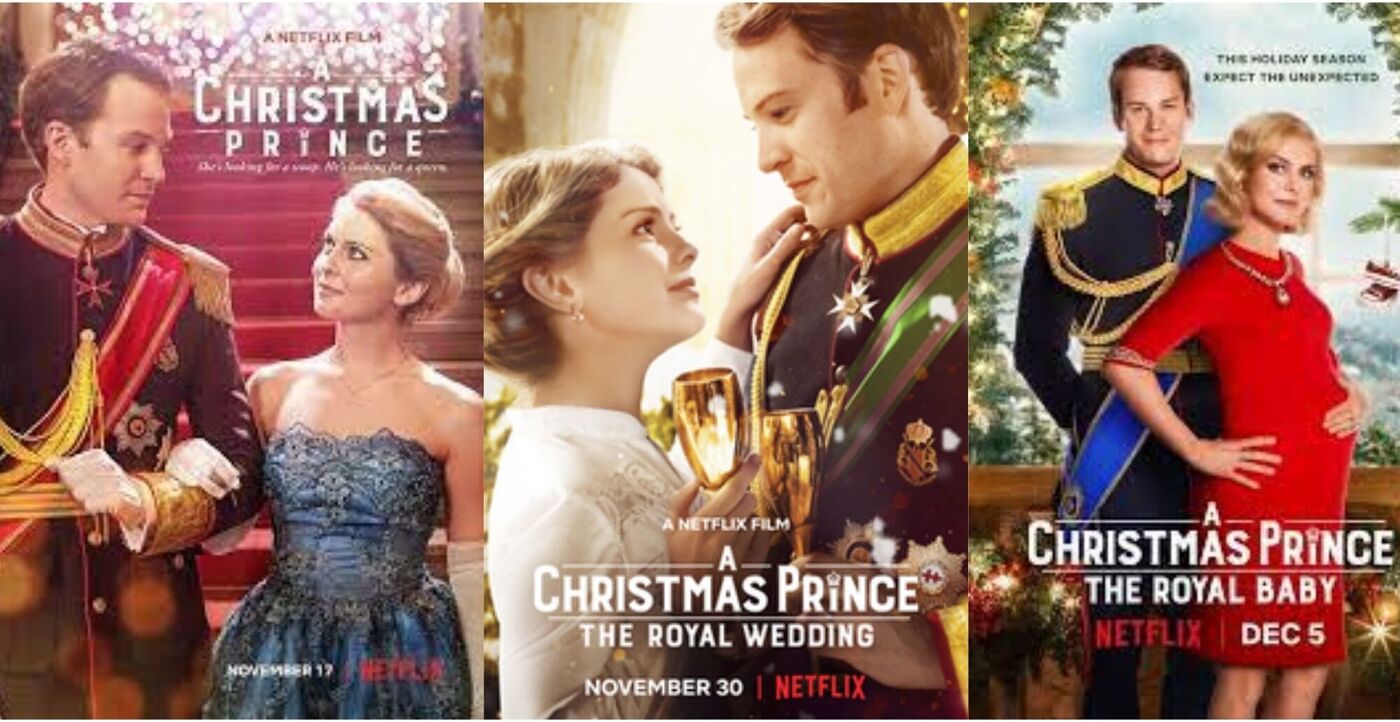
Poor Representation
The sequel to the highly successful A Christmas Prince (2017) introduces the character of Sahil Mattu, a wedding planner. This Indian character could have been a positive representation of Desi people in contemporary media. However, Netflix ended up depicting a more stereotypical and harmful portrayal of a South Asian man.
Incorrect Pronunciation of “Sahil”
Firstly, the pronunciation of his name throughout the film is the first indicator of ignorance and racial insensitivity. In the film, everyone, including Sahil, who only refers to himself in the third person, pronounces his name as “sah-heel”. However, this traditionally Desi name is actually pronounced “sah-hill”. Although only mentioned once in the film, his surname is mispronounced as well. When Sahil introduces himself, he says “sah-heel mat-two” when it is actually pronounced “sah-hill mutt-oo”. By ignoring how a name is pronounced, especially a simple and easy to pick up pronunciation, the film not only disrespects the character but all South Asian people with traditional names.
Stereotypical Accent and Mannerisms
Secondly, the accent and mannerisms are stereotypical and harmful in their depiction of Desi people. This is not the fault of British-Indian actor Rajendra Bajaj but the choice of the network and production teams. If his character had a British or American accent like the other characters, it would not have been an issue. It seems odd to single out one character as having an accent. However, the issue does not lie in his character having an accent, but the type of accent he has. His accent can be compared to Apu from The Simpsons or Baljeet from Phineas and Ferb. It is an unrealistic Indian accent that employs inflections and enunciations that are not typical of people with Indian accents. It is an impression of what non-Desi people think Indians sound like, as is evidenced by decades of negative Indian depictions in Hollywood.
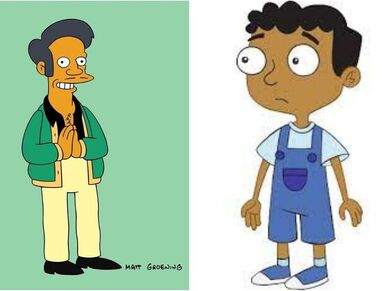
Clothes And Their Perception
Thirdly, and finally, Sahil wearing only metallic sherwanis throughout the film also appears to be racially motivated. He is described as a highly sought-after and successful wedding planner who even planned the wedding of the Baroness of Frankfurt. While this might seem like a way for his character to honour his culture throughout his business dealings, it is again odd that he is the only character of colour to do so. Especially when dealing with royals, most people, especially experienced business people would opt for professional attire that follows whatever royal protocol dictates. His only wearing sherwanis implies that they are typical pieces of clothing that are worn regularly. This is not true, as sherwanis, especially metallic and embroidered ones, are typically only worn on special occasions. This is another way Desi culture and people are disrespected.
Racist Microaggressions in Film
While the character of Sahil is not overtly or explicitly problematic in its depiction of a minority and marginalized group, for example as compared to Mr. Yunioshi played by white actor Mickey Rooney in Breakfast at Tiffany’s, it is still an issue. Like a lot of racism and ethnic discrimination that occurs today, it is done through microaggressions. It may seem like discussing Sahil in the sequel of A Christmas Prince might seem like falling victim to oversensitivity, but it is through popular depictions like this that negative stereotypes are perpetuated. While the movie and the trilogy as a whole are enjoyable, the poor execution of what could have been a wonderful character is a stain on its success and popularity.
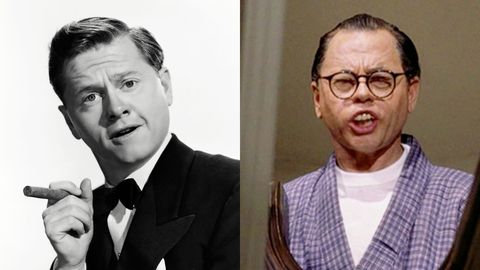
Positive South Asian Representation
Positive representation means that the minority group being depicted is shown in an honest and appropriate manner. Many films since the 2010s have aimed to better represent BIPOC people after decades of backlash, criticism, and protest from the marginalized communities. Some examples of positive South Asian representation in Hollywood are: Devi Vishwakumar from Never Have I Ever, Olivia Hanan in Sex Education, and Hasan Minhaj in Patriot Act. The first two are desi characters played by desi actresses. Their cultures are depicted in their shows but never in a negative way. The latter is a famous Desi comedian who does not make fun of Desi culture in a way that Russell Peters does. It is important to represent South Asians positively so that negative and harmful stereotypes are not reinforced.
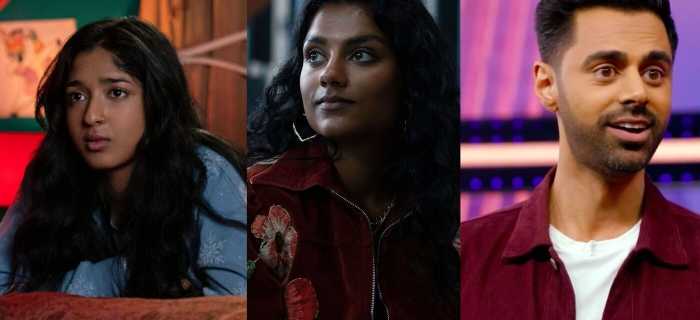
Improvements in the Final Film of the Trilogy
It is important to note that Sahil’s depiction in the third film of the trilogy is far less problematic. He is not always shown wearing metallic sherwanis and spoke with a far less exaggerated accent. The third film also introduced new characters, King Tai and Queen Ming from Penglia, who are clearly of East Asian descent. These characters are also not wholly innocent in their depictions of East Asian characters, but appear less aggressive than the approach taken with Sahil in the previous film. They do not speak with stereotypical East Asian accents and do not dress in stereotypical East Asian attire. However, they do show Queen Ming as submissive and hesitant to embrace feminism until white saviour Queen Amber changes her mind. Perhaps, Netflix tried to fix their mistake.
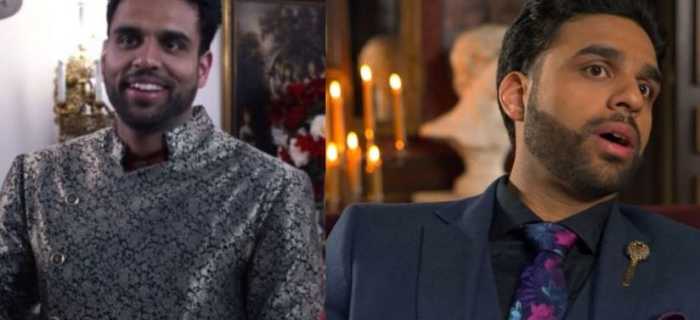
While Netflix’s efforts are appreciated, it does not undo the harm caused by Sahil’s character in the second film of the trilogy. Since the A Christmas Prince trilogy, Netflix has released another Christmas trilogy, The Princess Switch films starring Vanessa Hudgens. These films do not acknowledge race, which can be harmful in its own way. However, it is a healthy way for this genre to include POC (people of colour) in the films without playing into harmful stereotypes. Maybe Netflix learned their lesson or received significant backlash, but they appear to be doing a better job now.
What do you think? Leave a comment.











This film and its predecessor just follow the typical rom com formula, with every cliche you can think of.
Good analysis. Actually… this is my favorite Christmas movie, and it’s become a yearly tradition to watch while decorating my little tree. But this might be the last year I will do that.
I literally would’ve never watched this movie even if you hadn’t written this.
Determination.
I accidentally watched the entirety of Christmas Prince 2 before I realized it was a sequel. I thought I was just confused because the writing was so bad.
I thought these types of films were supposed to basically be fantasy fuel for unhappy housewives, which is why them choosing to include class conflict as a plot point is so amusing & baffling to me.
At no point in this rambling incoherent movie, was it even close to anything that could be considered a rational plot.
Great case, I didn’t consider the racism undertones of the what is now a franchise.
I am a sucker for corny Christmas movies, but will skip this trilogy!
Interesting, particularly the point about the mispronunciation of Sahil’s name. I’m working on a book right now whose protagonist is disabled and has the rather unique name Finola. At least one antagonist continually calls her “Fiona,” not because they don’t realize the “L” is there, but because they want to deliberately misname and thus belittle her. (You don’t have the abilities of most people, so you don’t deserve to be considered, down to your name).
I am much of a nerd, because what throws me most into the alternate universe uncanny valley is that a country that speaks with British accents uses salic law instead of even male primogenature. Under male primogenature the princess would still be the head in line of her cousin because she’s a child of the king. Which is the system that the British used unofficially until Henry VIII and officially from Mary I, all the way until Kate was pregnant for the first time and declared that her first child would be the heir, whether it was a boy or girl. If these people use salic law (i.e. no female sovereigns ever) they should really be speaking with French or German accents. Which would also just make more sense because in our universe there have been French- and German-speaking microstates in ways that there have never been English-speaking microstates.
I still hate Amber’s friends…. starting to hate Simon a little less.
The two main leads have ZERO chemistry. Like, less than zero. It’s an immediate turn off. There was less chemistry on this movie than the first one.
That would tend to ruin even the best of scripts.
Well, if you want a movie you can play cinema sins with or use as a drinking game this Christmas, you’ve found it!
I just can’t get over the fact that in this franchise that’s supposed to be light Christmas romance movies that moms can watch without thinking about it too hard, the second movie goes fairly deeply (for a movie anyway) into the policy wonk details of an economic crisis. It would be like if Love, Actually had a subplot where someone saves the day with Modern Monetary Theory.
I’m hoping for the fourth film, we learn that Richard was the villain the whole time. He tricked his nation into loving him, only for him to reveal he was using them for his own personal gain. He’s actually a Russian con artist and Amber and Simon team up with an American spy to bring him to justice.
I just want something interesting to happen, okay? These films are stupidly nonsensical and strange over all.
I love that u created such a well thought out article essay on just some quick cash grab christmas movies! 😉
This is really a low point in movie land. Nothing is really good or engaging about this film.
I hated the sequel. Have you ever wanted to see how a failed writer, her uninteresting friends, and a crippled princess save a nation’s economy? No? Then don’t watch this movie.
So cliched and cheesy, I kept rolling my eyes the whole time.
Sometimes I think Netflix promoted this movie as a wonderful garbage. haha
I recommend people check out hotdiggedydemon’s video brain dump – The Apu I know. While there is no denying there have been intentionally racist and malicious depictions of other race’s in media, I’m not sure if Sahil is one. (I’ve never watched the Christmas Prince films, so I’m basing my assessment off the analysis in this article.)
I Don’t agree that Apu or Baljeet are either. While Apu is being played by a white actor, Hank Azaria’s performance was largely inoffensive to most Indian people. This is because while being a clear stereotype, he was meant to mock/question some of Indian culture. He was also never reduced to just an one note character. Apu struggled with his identity as an immigrant,Hindu, and Indian man. Having lived in America he abandoned many of the cultural ideas that his parents felt where important to being a good Indian/Hindu. This cultural divide was what many felt was his real purpose, not the one off jokes or his accent. This is why he became such a beloved character by both Americans and Indians alike. Apu is a smartly written character, who often reveals aspects of the what it is like to be an immigrant, and how they struggle to fit in and sometimes are unfairly treated in their new homes. (Obviously some people got upset other wise we would not have gotten The Problem with Apu Documentary. But fans of the Simpsons usually consider him to be a positive depiction of immigrants and Indians.) We also have to take note of the context in which these characters exist. Once again gonna look at something besides Christmas Prince due to my unfamiliarity with the film series.
I think Jeff Dunham and Gabriel Iglesias world tour comedy specials is a good example of why stereotypes are not inherently racist. Both comedians make jokes about races/cultures that are not their own. And both comedians admitted when they traveled to the Middle East they did not want to make jokes about Muslim’s as the were afraid the jokes might offend as they often mock the culture without depicting the complexity surrounding it.
But to their surprise those jokes where the ones that landed the best. Jeff Dunham was caught off guard by how well his bits with Achmed the dead terrorist went in the Middle East, despite being a stereotype of the culture. This is because most people acknowledged it was a joke and he meant no ill well. (I would point out that most comedians are equal opportunist and will mock anyone regardless of their background. If these comedians only made fun of one group, maybe you could say there was some racism, but even that would be a stretch imo.) This is largely the problem with woke culture in my opinion, as any representation that does not perfectly fit in with someones cultural sensibilities or is 100% positive becomes offensive. Now I’m not saying this is what the author of this article is doing. But I believe context is key. And each depiction needs to be carefully examined.
If they do a 4th movie, please have a better script and acting.
I was looking forward to a cheesy sweet Christmas sequel. This was not it.
Great take on these christmas films. Characters were awful and not likeable in the slightest.
Is there any Christmas movie that you like?
There’s all the classics like Elf, How the Grinch Stole Christmas, etc., but I also like the cheesy princess switch movies.
I am about half way through the movie and I’ve decided not to finish watching it and instead ended up on this article. Glad I did! 😉
I don’t know… I quite liked the films. It’s like popcorn at the movies- a little stale, maybe cheesy, but it’s good enough for you to finish it.
It’s interesting how this movie is somehow one of the few that has an accurate hacking description, (Emily’s man in the middle attack), and has a pretty accurate description of what one is.
This is worse than a generic Hallmark movie. This is absolute garbage.
Sahil was obnoxious and most of the movie was boring and frustrating.
I can’t believe I wasted 90 minutes of my life on the sequel.
I need your analysis on every movie ever now.
Me and my sister watched this horrible movie and wasted pur valuble time.
the perpetuation of the princely rescuer myth and al the tediousness that comes with it, is tiresome and belittling . I find it hard to see the joke.
This jaded response comes from exposure to a surfeit of films where characters are mundane, trite and cheap and the royal thing done to death.
Maybe I’m wrong Maybe an escapist fairy tale is needed to lift us away from daily horrors of the news cycle ( plenty of fairy tales and myth there one could suggest)
Edward Said once wrote: “The Orient and Islam have a kind of extrareal, phenomenologically reduced status that puts them out of reach of everyone except the Western expert.” Netflix, in this case, would be one of our current Western experts.
I think this is such an important commentary on how media companies use racial stereotypes and microaggressions to influence their largely Western audiences into believing that every other part of the world has odd quirks and “weird” ways. When in actuality these cultures are not similar to their potrayals in the slightest.
I actually liked the first movie because it was cheesy, but after this, I’m not sure I want to watch the others. This is very problematic.
I always think when issues of this are brought up is what expectations or lack of do we put on the actors who accept these stereotypical roles or downright racist ones.
Should they not take a stand and not even audition for them? Or do we just accept that they are just actors and have to do what is expected by the directors to make it. A personal story I wanted to be an actor in my youth and was acted in quite a few theatre shows. I realised I actually was not cut out for acting because for me to truly become a successful actor you have to put your own pride, personal beliefs and ego away and take what ever role was out there. I could only do 2/3 but i wouldn’t want it any other way. Nothing for me is worth comprising your personal belief and integrity.
This was a good analysis of problematic representation. On one hand, yes representation is important and welcome. But on the other hand, representation can reproduce racial stereotypes. There should be diverse people writing scripts for diverse people which is why the groups of writers should be diverse. It should be socially unacceptable for TV writers to write parts such as Apu. Hopefully with the recent backlash there will be more acceptable forms of character writing. I enjoyed reading this article.
These kinds of characters are often used as “jokes;” a visual punchline for White Western audiences to go “look at that silly man with his silly accent! He’s different from me, so I laugh at him!” It’s a completely outdated and, frankly, immature and idiotic form of a joke.
This is a great and absolutely fair analysis. It feels like Christmas movies rarely receive the same criticism as does virtually every other genre, both because they’re dismissed as harmless “holiday entertainment” and because they tend not to receive as wide a release.
Excellent analysis! I really appreciate your viewpoint and agree with your conclusions. If the POC in a movie are only there for comic relief at their own expense, that’s not true representation and the film industry needs to do better.
Interesting, I haven’t seen these movies and now probably never will.
I feel like a problem with Hollywood writers like this is that they base their POC on other POCs from other poorly written movies. Which leads to a cycle of unresearched stereotypes that reinforce to the audience that this is what a POC looks like/acts like.
I think more diversity in a writer’s room is the only solution, as surely someone with East Asian heritage in the room would have nixed a lot of these issues before they aired.
Racist undertones and Christmas movies have a history that is long and enduring.
From racism to sexism to just generally toxic behavior, why is it that holiday movies seem so susceptible to being problematic? Very thought provoking.
Great write up about this issue. I never was interested in the film series but this is a good reason to not add it to the watch list.
As a man of Latino-American heritage, it is no surprise to me that racism is deeply embedded, rooted, and intertwined in the history, hearts, minds, and souls of a large percentage of the population. As America turns a scrutinizing eye toward the Latino population, it is no secret that the media is the #1 influencer in people’s thoughts and ideas. I resonate with this article as I have noticed how a large portion of today’s media can so subtly manipulate an audience’s viewpoints towards people, places, and just about everything else. Of course, Netflix, One of today’s largest content-viewing platforms, will be on board with this current subliminally racist agenda. If looked at with an attentive eye, it’s clear that the creators of modern media view Latinos as incompetent, sexual objects, who don’t seem to fit the standards of American culture (or lack thereof). It is no surprise to me that a man of Asian descent can face the same type of media-based discrimination. Sahil Mattu and just about every other person belonging to a race or group of people not identifiable as white will always be poorly represented in media outlets like Netflix simply because there are standards to uphold, there is supremacy at stake, and nobody of a race other than White is safe from indecent exposure.
I’m personally not a fan of ‘Hallmark’ Christmas movies if you will, because they lack of effort appearing to go into them is frustrating to see. However, after watching a couple, I can see where the appeal comes from.
Unfortunately, I think these types of films are always aimed towards older white women, many (certainly not all) of whom may not be fussed on proper representation, because they usually watch it for the romance. Therefore, I believe production companies turn away from being respectful because the expectation isn’t there, like it’s showing up for bigger, more mainstream films.
I feel like Netflix is far off from perfect in terms of representation, but I can appreciate that they are getting slowly better.
What a great analysis, this really brings important problems to light. I had seen this movie years ago but never really thought about this specific character and the racist undertones surrounding him. Too many Hallmark Christmas films are the same unfortunately, but talking about it and recognizing it is so important!
Writing this in 2024, just wanted to say thank you for this article. I’m South Asian and I was watching this movie for the second time in a few years and his character was giving me such a headache and discomfort, I wanted to look up if anyone wrote about it. Times have slightly changed, I do hope we have less unrealistic and harmful stereotypes like this… That accent literally does not exist except for in American TV imagination, it is so odd to me! Gosh. Anyway. Thanks <3